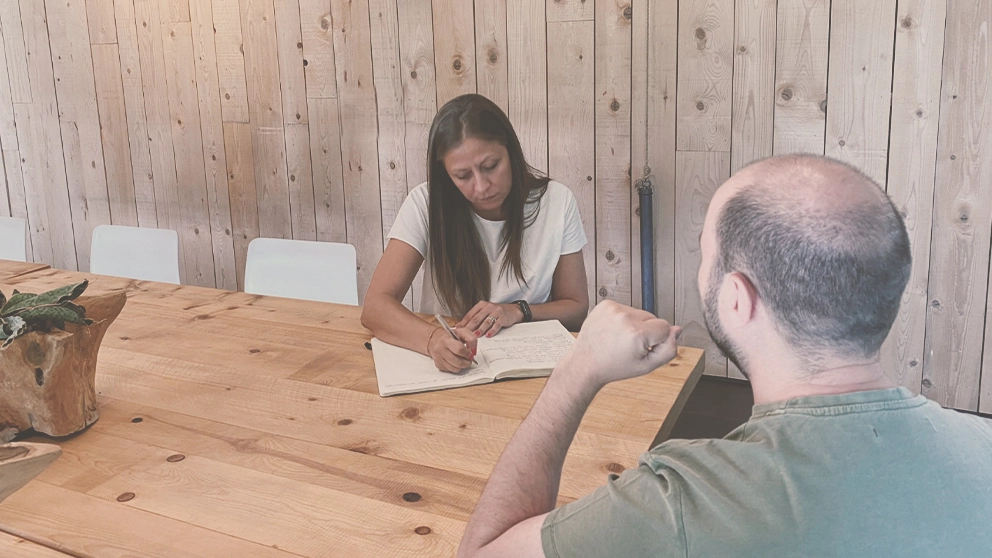The TSW research team conducted an assessment of Forel Spa collaborators, with the aim of helping the company understand how it can concretely improve people’s well-being

On the collaborators’ side
Forel Spa, an international company based in the Treviso area, has over time tried to put itself in the shoes of its collaborators, to imagine their needs and desires, and has listened to those who have something to communicate.
The commitment was and is aimed at making everyone’s experience as rewarding as possible, making Forel a place in which to feel good, in the time shared daily, and also responding to personal life needs.
Thanks also to the strong relationship with TSW – on whose experience in the field of research with people it can count – the company has recently taken a further step in this direction, deciding to offer everyone in a structured way the opportunity to share aspects positives of being part of a company like Forel, but above all any areas for improvement, to focus on.
Where you feel good, you work better. Therefore, organizations that care about the well-being of their collaborators and that are concerned with carrying out an analysis of the internal climate, especially at particular moments in the company’s history, to understand whether we are all going in the same direction, have an advantage. When companies expand or more generally when they are undergoing significant changes, with the risk of breaking the balance and that, some more than others, they are overcome by fear of the new, it is better to stop and observe and listen to what happens, in people and between people.
TSW’s research project for Forel
TSW suggested that Forel proceed with an collaborator assessment, i.e. a qualitative research project, through semi-structured interviews.
The objective was to collect useful information to identify possible actions to improve people’s well-being and satisfaction, elements that encourage the desire to grow within the company, promote solid and lasting collaborations, contribute to improving efficiency and increasing productivity.
TSW, together with Forel, has identified 15 open questions, to be asked to all participants, relating to their experience with respect to:
- Wellbeing in the company
- Collaboration between colleagues
- Relationships with ownership and management
- Sharing and involvement
- Company benefit expectations
It wasn’t really a script, but rather a plot to adapt to the conversation, a map that allows the interviewer to orient themselves, leaving the helm to the people: as Raffaella Roviglioni writes in her book “Who wants faster horses?”, “The interview is a partly guided conversation, as a driving school lesson with dual controls could be. […] We are there to straighten out and direct with delicacy and tact, but it is the participant who decides where to turn and what to operate to do it.”
This last point is of fundamental importance, to guarantee people a space in which to be authentic and bring out what is truly relevant to them. It is certainly the interviewer’s responsibility to keep the destination in mind, so as to collect the necessary information because it is functional to the objectives of the project, but detours and alternative routes can prove to be the harbinger of pleasant surprises. Thanks to the unexpected paths that people’s stories sometimes take, questions can be adjusted to gather information even more effectively for research purposes.
Before starting the activity at Forel, an internal communication was sent to all collaborators so that they were appropriately informed of the initiative and its methods and purposes. The preliminary sharing allowed everyone to reflect on what was proposed and on the opportunity to join it or not. A participation experienced as imposed, on the contrary, would have undermined the genuineness of the responses, compromising the value of the information collected and the quality of the resulting actions.
The TSW team of researchers carried out the interviews at the company, in a confidential environment, dedicating adequate time to each person who freely decided to join the project. The almost total participation confirms how meaningful it is for people to have someone willing to listen to their story.
The fact that the interviewers were external and the guarantee of anonymity in reporting to the Management certainly encouraged even the most fearful or reticent. However, these preconditions would not have been effective in persuading them to participate if there had not been an underlying desire to make their voice heard and be listened to.
Project closure
The project is currently in the final stage.
The return to the property will take place with a report of aggregate information, respecting the anonymity of the respondents. The document will report the main evidence emerging from the stories collected, the positive aspects (which confirm the good practices adopted by the company), but also and above all any more widespread inconveniences and critical issues, which can inevitably be found within an organization.
In particular, an in-depth analysis, if necessary, is envisaged on specific problems of certain company areas/departments.
The perspective
The assessment conducted by TSW is in all respects a research project, but it also represents something more. The interviews, in fact, already constitute an organizational intervention in themselves: not only are information collected, but a substantial change is initiated in the company. As Edgar Schein teaches us “once interviewed, collaborators expect consequent actions. They will talk to each other, thus changing opinions and perceptions in unknown directions.”
The voices collected now enable Forel to plan targeted and varied interventions to promote collaborator well-being, good internal relations and long-lasting collaborative relationships based on mutual trust, all elements that give the company a sure competitive advantage.
Among the actions that the Owner will have to evaluate, there will also be space for further research activities. Ad hoc projects may be aimed, for example, at specific homogeneous groups in terms of needs or desires, always with a view to building the best experience in the workplace together with them and for them.